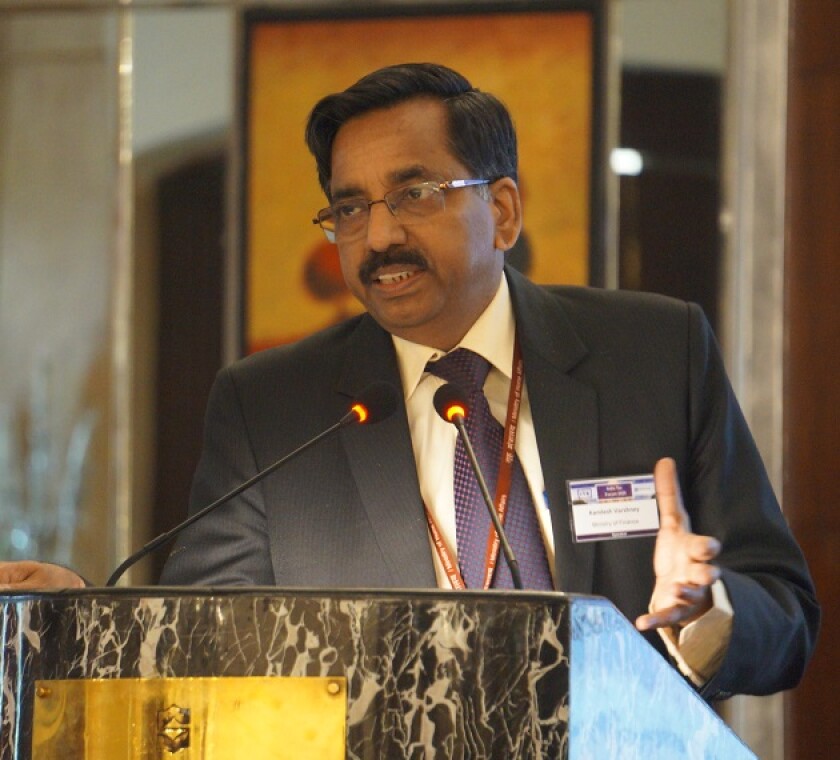Speaking at ITR’s India Tax Forum, Varshney said there was a lot of expectation that the BEPS package was definitely going to stop base erosion and profit shifting, but India’s experience has not been that encouraging as BEPS outcomes are concerned.
“There is definitely some incremental benefit that has come about because of the BEPS outcome, but still they have not delivered as much as countries expected them to leave deliver,” said Varshney.
“In fact now OECD also believes that the BEPS outcomes have not been as encouraging as expected,” Varshney added.
Therefore, governments expect a lot from pillar one and pillar two, Varshney claimed. However, there are “definitely some question marks” over the pillar one proposals on how to tax the digitalisation of the economy.
The joint secretary said it is still uncertain whether countries will reach a definitive agreement on the measures by the end of this year, but achieving this is a very important step.
India’s equalisation levy is one of the unilateral measures that has emerged as countries grow impatient of finding a global solution. Varshney warned that companies will have to deal with more double taxation if there is no agreement because the unilateral measures will stay.
“One of the principal elements of taxation is that taxpayers should pay a reasonable amount of taxation, but they should not be double taxed. We will be failing on that pillar and, therefore, it is very important that countries come to a solution,” Varshney said.
The future of the arm’s-length principle (ALP) is up for debate, along with the traditional idea of a permanent establishment based on physical presence. This is a positive development in Varshney’s view.
“Something positive has definitely happened so far as pillar one is concerned and that is the realisation that physical presence is not the sole criteria to decide whether there is a permanent establishment [and] that ALP method of compensation is not adequate, because it does not capture the demand side of the market economy,” the joint secretary said.
Pillar two is also an equally important initiative for India, but the country is unlikely to gain a significant amount of more revenue.
“The solution that is being discussed is basically like and income inclusion rule, which will favour the country where MNCs are resident, Varshney explained. “In our case, we do have Indian MNCs, but we are not sure that those Indian MNCs are routing their transactions through tax havens.”
However, the joint secretary did note that most developed countries where Indian where MNCs are based will most likely gain revenue from pillar two. Even though the measure will not boost Indian coffers, India is supporting the proposals to tackle the problems the BEPS project set out to address.
“It will remove base erosion because there will not be any incentive for multinational corporations to lower the tax rate or to route its transactions through tax havens,” Varshney said. “Tax havens will also be compelled to impose some minimum amount of taxation,” he added.
The pillar two proposal of a minimum corporate tax rate could be more important for countries like India because every stream of income must face some minimum level of taxation and tax havens may, as a result, start imposing taxes and collecting revenue.
“The principle of pillar two is very important,” Varshney said. “It will really change the way we work, as well as create subsidiaries and transactions around the world, to lower our taxes.”
“This is going to be a game changer in my view,” the joint secretary added, noting that there is little resistance from countries over agreeing to this measure.
Nevertheless, whatever solution countries agree on, the result will decide the future of international taxation. The structure needs to be a long-lasting solution that considers the future growth of the digital economy, new forms of doing business and offers a framework that reduces disputes.
“All the countries, including India, are mindful of the fact that ultimately we, whatever solution we provide, need to keep our country's interests in mind,” Varshney said. “We also need to keep the interests of taxpayers, businessmen, and investors in mind, which is that they are ready to pay taxes, provided there is no double taxation and there is tax certainty.”
Although, like many countries, India’s motives appear to be based on finding solutions that are fair for taxpayers and governments alike, the country’s decision to implement unilateral measures and protect its revenue base means taxpayers will be stuck with double taxation and a lack on tax certainty for the short-term at least.











